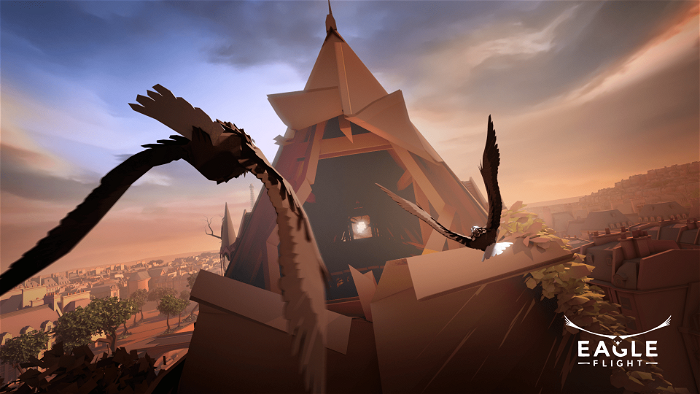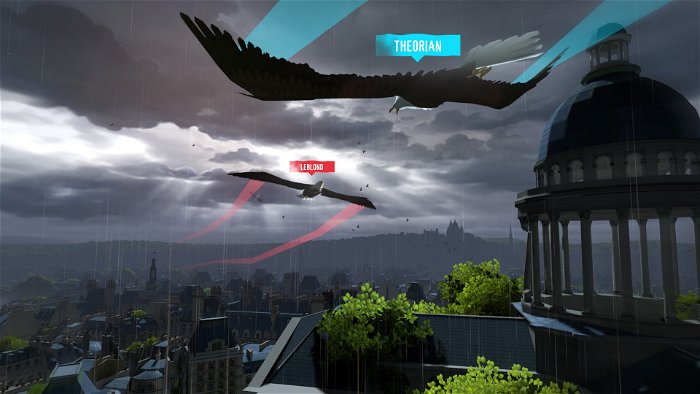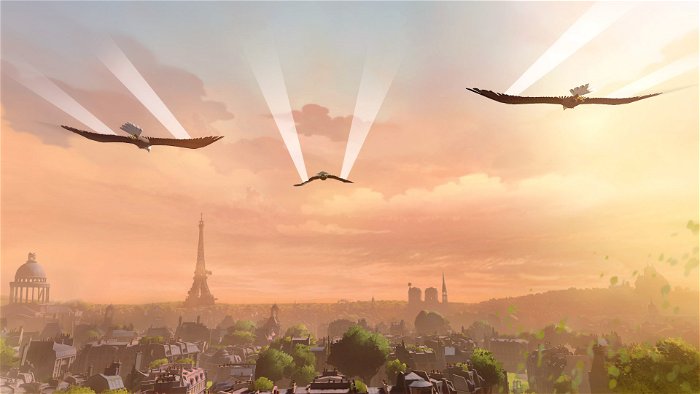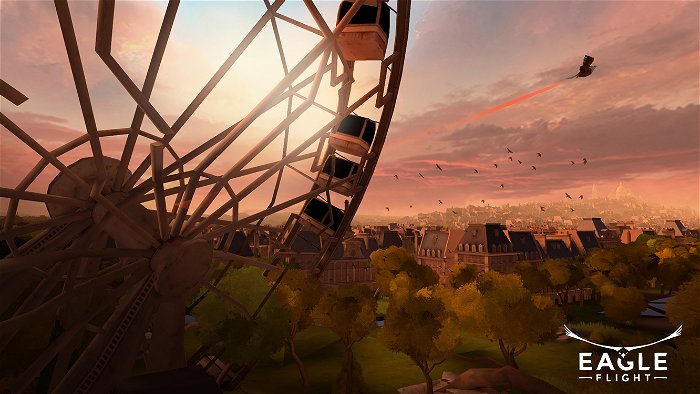Playing a video game has always been a marriage of audio and video. Mechanics and gameplay aside, having the right soundtrack paired with a specific aesthetic can elevate a game to higher levels of immersion. When it comes to Virtual Reality, that perfect combination becomes even more important.
Inon Zur is a three-time BAFTA-nominated composer who has created music for franchises like Fallout and Prince of Persia and recently composed the score for the VR flying simulator Eagle Flight. CGM got a chance to pick the brain of an artist and to find out the methods involved in composing a soundtrack to an interactive experience.

CGMagazine: Can you give us a bit of background on yourself? How long have you been composing music, what are your influences, which artists do you enjoy listening to for your own pleasure? Do you play video games?
Inon Zur: As early as I can remember I was always fascinated by music. I started playing piano and writing my own compositions from a very young age. Later I studied music composition and theory and graduated at the Music Academy of Tel Aviv in Israel. When I came to the USA I studied film music at the Dick Grove School of Music and UCLA under composers such as Jack Smalley and Henry Mancini. My early career included composing music for the TV shows Digimon, Escaflowne, and Power Rangers. Soon after I was approached to score music for video games and discovered they offered a lot of creative freedom.
I have many influences and always keep my mind open to finding new music and sounds for inspiration. But I especially enjoy listening to jazz music like George Gershwin. Also the classical works of Sergey Prokofiev, Igor Stravinsky, and Beethoven and the film music composers John Williams, Jerry Goldsmith, and Thomas Newman.
It’s not always possible but I always try to play the games I’m working on so I can best serve the project with the most appropriate score.

CGM: How do you begin shaping and composing a soundtrack for a game like Eagle Flight? What is your process? What level of freedom do you have when writing the music?
Zur: I was given quite a lot of freedom by Ubisoft. We compiled some initial ideas and I gave them some examples that I thought would work well for the game. After that they literally let me open my wings and fly [laughs]! We were both on the same page from the beginning, treating the music in a style that embraced the game’s setting and natural elements and embellishing with orchestral touches. I must say the Ubisoft team was very open to ideas and that made the collaboration most enjoyable.
In order to shape the score of Eagle Flight, we first had to decide how we wanted to express the experience of flight through music and to establish the general concept of what should be the soundscape and the style of the composition before I even jump into a specific cue. My approach was to write slow-moving melodies, whereby the orchestral melody lines are slow moving and evolving while the percussion is more rhythmical supporting the melody. This combination enhances the experience because it captures the view as it is revealed and is driven by the pace and speed of the percussion. The creative puzzle was to identify elements that would be the building blocks for the score. I’d run them by the team and only then start to write individual cues.

CGM: How much did the city of Paris contribute to influencing the music? In a similar vein, the mechanics of the game itself seem to flow with the soundtrack. Did you get a chance to play the game before you wrote the music?
Zur: We only weaved subtle memories of Paris into the score, like distant bells and other elements that might remind the player of the city’s great history and what used to be. But the actual focus of the score is in the present and what exists now, which is a wild and undiscovered realm.
Yes, I got the chance to play the game at Ubisoft before I wrote the music—that was extremely helpful because the control has a very specific feel. I felt that after I played the game, experiencing the view and how the control works, it gave me a much better idea of what kind of music would best support this experience. So it was immensely beneficial and a smart idea by Ubisoft to let me experience the game first-hand.
CGM: How much of the game were you shown prior to and during the process? Was it simply an idea and some concept art or was the build pretty much good to go when you jumped in?
Zur: Actually I was shown quite a lot of the game. Ubisoft sent me numerous audiovisual clips, showing the different areas and views. Since it’s such a scenic and cinematic experience, I treated this project much more like scoring a movie [compared to other games], screening the images and video clips on my screen while composing the music.

CGM: How was writing the soundtrack to Eagle Flight compared to a series like Fallout or Prince of Persia?
Zur: It was very different because of the way the game is being played—by flying—and the intense immersive experience of Virtual Reality. These two factors required me to treat the score with a different approach. Instead of changing the mood a lot, we transitioned between moods more gradually. I tried to capture the movement and the experience of flight rather than concentrate on the specific storyline of each level. So it’s more about the emotions and motion that the player goes through when flying above the city. When the story starts to evolve, the dramatic elements of the score become more prominent.
CGM: What was it like working with Aeralie Brighton and Mimi Page?
Zur: An amazing experience. Both singers are absolute professionals and each of their voices extremely inspiring in their own special way. Their voices contributed greatly to the different flavors of the music that I wrote and both of them elevated the score to greater emotional heights. I was very happy with this collaboration.




